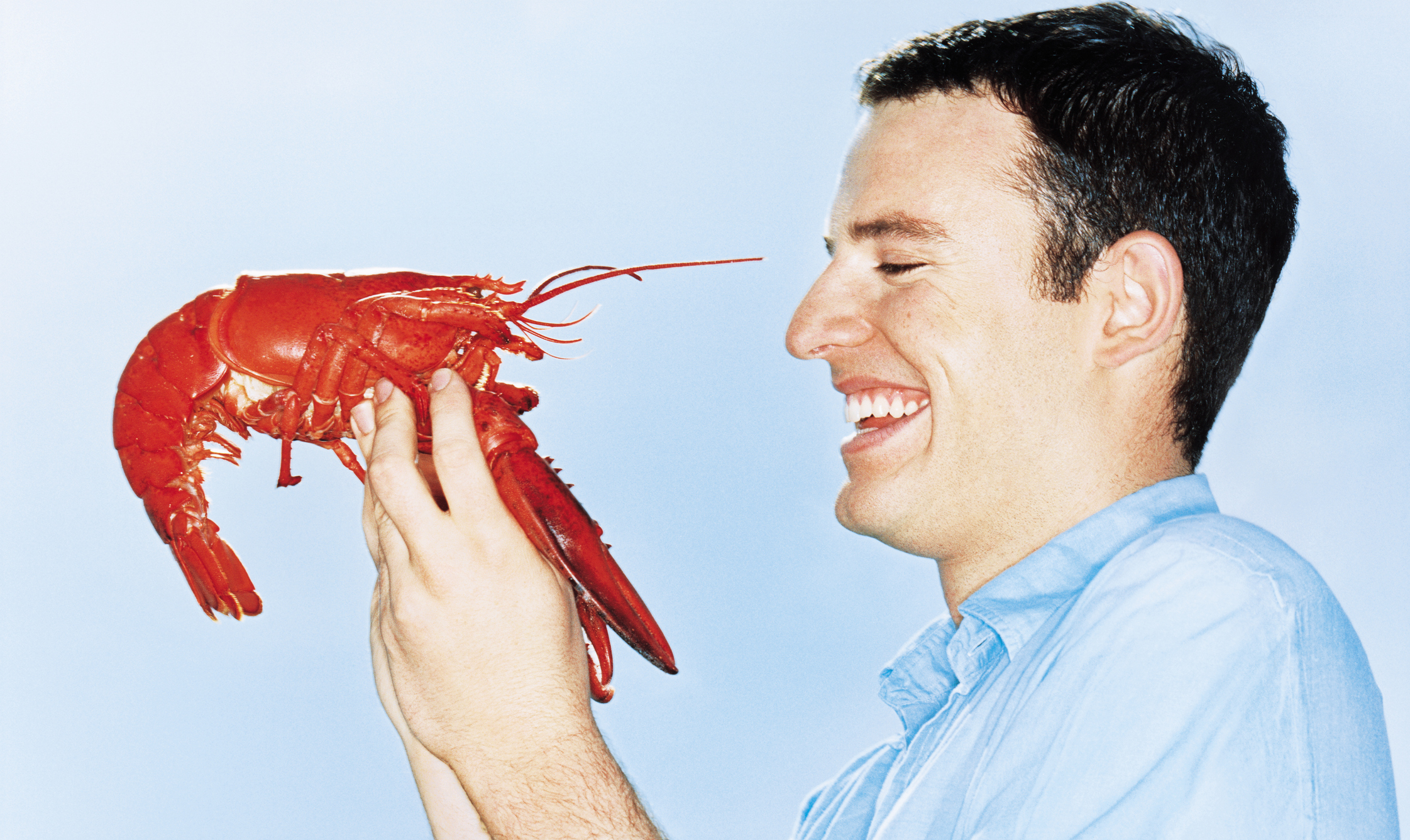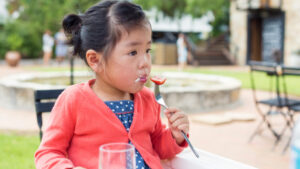Are these ASX companies poised for red rally as Albo courts Beijing?

China-focused ASX stocks hope Albo's visit will bring good fortune. Pic: Getty Images
- Prime Minister Anthony Albanese in China to restore stability with Australia’s largest trading partner
- Visit coincides with Sixth China International Import Expo, where ~250 Australian companies are represented
- Exhibitor EZZ says Australian products still popular with Chinese consumers
As Prime Minister Anthony Albanese embarks on a crucial China mission to restore some stability, ASX stocks are hoping to benefit from improved relations with Australia’s largest trading partner.
Albanese’s visit marks a significant milestone, as he becomes the first Australian PM to step on Chinese soil in seven years.
“The fact that it is the first visit in seven years to our major trading partner is a very positive step and I look forward to constructive discussions and dialogue with (the) President and the Premier during my visit to Shanghai and Beijing,” Albanese said.
He joined a select group of international leaders invited by China to the opening of the Sixth China International Import Expo (CIIE) in Shanghai, where ~250 Australian companies are represented at one of the world’s largest trade shows this week.
Also visiting the expo is Australian trade minister Don Farrell who will deliver a keynote speech at the Hongqiao International Economic Forum in Shanghai “highlighting Australia’s support for an open, rules-based trading system”.
“Trade between Australia and China has delivered significant benefits to both our countries,” Farrell announced.
“My visit is another opportunity to advocate for Australian business, including for the full resumption of unimpeded Australian exports to China.”
Since its 2022 election win Labor has been working working to de-escalate tensions in the Australia-China relationship.
China has lifted most of its trade bans on Australian products and is reviewing crippling sanctions on Aussie wine. There is optimism among rock lobster exporters and a few red meat abattoirs that their products may soon receive the green light from China.
So as Australia looks to improve trade with China, which ASX stocks could stand to benefit?
EZZ Life Science (ASX:EZZ)

EZZ is one of several ASX health and wellness companies establishing a substantial presence in the Chinese market. The genomic life science company is promoting both its EZZ-branded healthcare and EAORON-branded skincare ranges of products to new buyers at this year’s CIIE.
EZZ has a dominant digital B2C strategy in China, including on Douyin (China’s version of TikTok) and Tmall Global. The company has also continued to expand its distribution channels and started trading on Onion Global’s O’Mall in July 2023.
Similar to Tmall Global and Douyin, O’Mall is one of the major cross-border e-commerce platforms in China, with ~300 million users.
EZZ has also been bolstering its marketing spend in China to raise brand awareness.
“EZZ is delighted to be exhibiting at the sixth China International Import Expo,” chairman Glenn Cross told Stockhead.
“Australian products remain popular with Chinese consumers and EZZ is proud to have China as its top export market for its range of quality healthcare and skincare products.”
RooLife Group (ASX:RLG)
RLG identifies trends in Chinese consumer demand, secures distribution rights for international products that fit consumers’ needs and provides the technology and sales infrastructure necessary for brands to sell at scale in China.
RLG has secured exclusive distribution rights into China for a range of products, including Remedy Drinks, New Zealand Honey Co, Fiji Kava, Hydralyte, and RLG’s proprietary VORA health brand.
The Calmer Co International (ASX:CCO) in partnership with RLG recently launched its flagship store for Chinese consumers on Alibaba’s Tmall global platform to sell Fiji Kava products.
RLG subsidiary RLG Marketplace also recently inked a deal to source and supply a range of goods including food, health and wellness, nutritional and beauty care products to be sold in China online and in the physical store network of Shanghai No.1 Pharmaceuticals.
The company is also attending the CIIE, marketing and promoting VORA, and also representing Remedy Drinks and The Calmer Co.
CEO Bryan Carr told Stockhead RLG is servicing strong demand for international products in China, which are held in high regard by consumers.
“Australia and Australian products are seen as high-quality, safe, reliable and as some of the best in the world across multiple categories,” he says.
Treasury Wine Estates (ASX:TWE)
It would be a case of ‘here’s cheers’ for the world’s biggest standalone wine maker should Beijing’s tariffs on Australian wine be removed as signalled in October.
The Australian Government says China had agreed to an expedited review of tariffs on Australian wine, expected to take up to five months.
TWE reportedly made one-third of its profit in China but lost most of that business when Beijing imposed tariffs on Australian wine in 2021, after the Morrison Government called for an inquiry into the origins of Covid-19.
Attending the CIIE, Penfolds MD Tom King says he was excited to be at the event and the prospect of removal of tariffs, which would be a significant positive for the Australian wine export industry and Treasury Wine.
“With relations between Australia and China continuing to strengthen, there’s increased enthusiasm from our local team and customers as we look towards the possibility of Australian wine once again being shared in China,” King says.
AuMake International (ASX:AUK)
AUK was developed on the Australian Chinese Influencer (Daigou) model, which has evolved over time and more recently transformied in response to major challenges of Covid-19.
AUK says its overarching vision “revolves around creating opportunities for Australian and New Zealand brands to engage with customers in Asian markets, both domestically and internationally, where their products and services enjoy a strong reputation”.
“Aumake’s ecosystem for merchants and brand owners gives them a direct marketing channel to their target audience,” the company says.
“They can promote and sell via the ecommerce function, either independently, or with the help of influencers using live streaming services.”
In its Q1 FY24 report AUK says it continues to leverage its robust sales network to introduce new brands and products.
Anticipating return of more Chinese tourists AUK says it is also building relationships with key stake holders to enhance online presence with the return of offline physical store shopping in Australia.
AUK on Monday announced it had secured binding commitments to raise ~$1.5 million in working capital via a placement to new and existing institutional and sophisticated investors.
“The additional funds will ensure the company is well placed to carry out its new operational strategy and capitalise on the improving Australia-China relations,” AUK managing director Joshua Zhou says.
The EZZ, RLG, TWE & AUK share price today:
Infant formula and food
China’s long love affair with the quality and safety of Australian dairy produce has effectively insulated local suppliers from political fallout in recent years between the two nations.
The sentiment can be traced back to the 2008 Sanlu Group melamine infant formula scandal, a major food safety crisis in China that led to more than 54,000 hospitalisations and the deaths of six infants.
Deep-seated consumer distrust in domestic products endured for more than a decade, with trusted and environmentally-friendly supplies from Australia and New Zealand fulfilling the growing demand for premium dairy.
There are several ASX companies which export dairy and infant formula to China including A2 Milk (ASX:A2M), Bubs Australia (ASX:BUB) and goat-milk based formula and nutritional products provider Nuchev (ASX:NUC).
Feeding the Chinese appetite for Australian produce are also several ASX-listed companies. Pure Foods Tasmania (ASX:PFT) was established in 2015 to promote Tasmania’s premium food and beverage businesses.
Beyond the domestic market, PFT has established broader distribution via exports with strategic partnerships including in Hong Kong.
Known as Australia’s biggest fresh produce company Costa Group Holdings (ASX:CGC) also operates blueberry farms in China.
In September CGC accepted a $1.5 billion takeover offer from a consortium headed by New York private equity firm Paine Schwartz Partners, which specialises in sustainable food chain investing, and is set to delist from the ASX in 2024 when the deal is finalised.
The A2M, BUB, NUC, PFT, CGC share price today:
At Stockhead, we tell it like it is. While EZZ and RLG are Stockhead advertisers, they did not sponsor this article.
Related Topics
UNLOCK INSIGHTS
Discover the untold stories of emerging ASX stocks.
Daily news and expert analysis, it's free to subscribe.
By proceeding, you confirm you understand that we handle personal information in accordance with our Privacy Policy.








